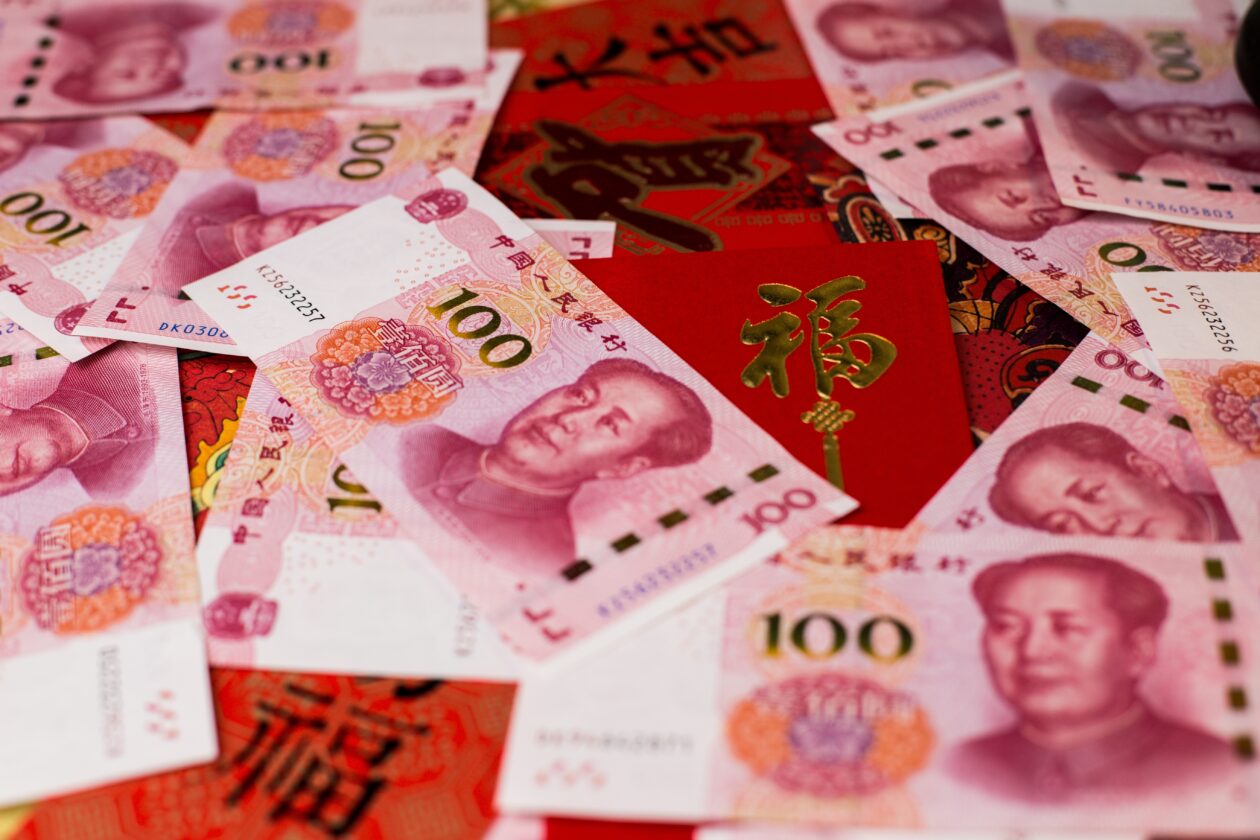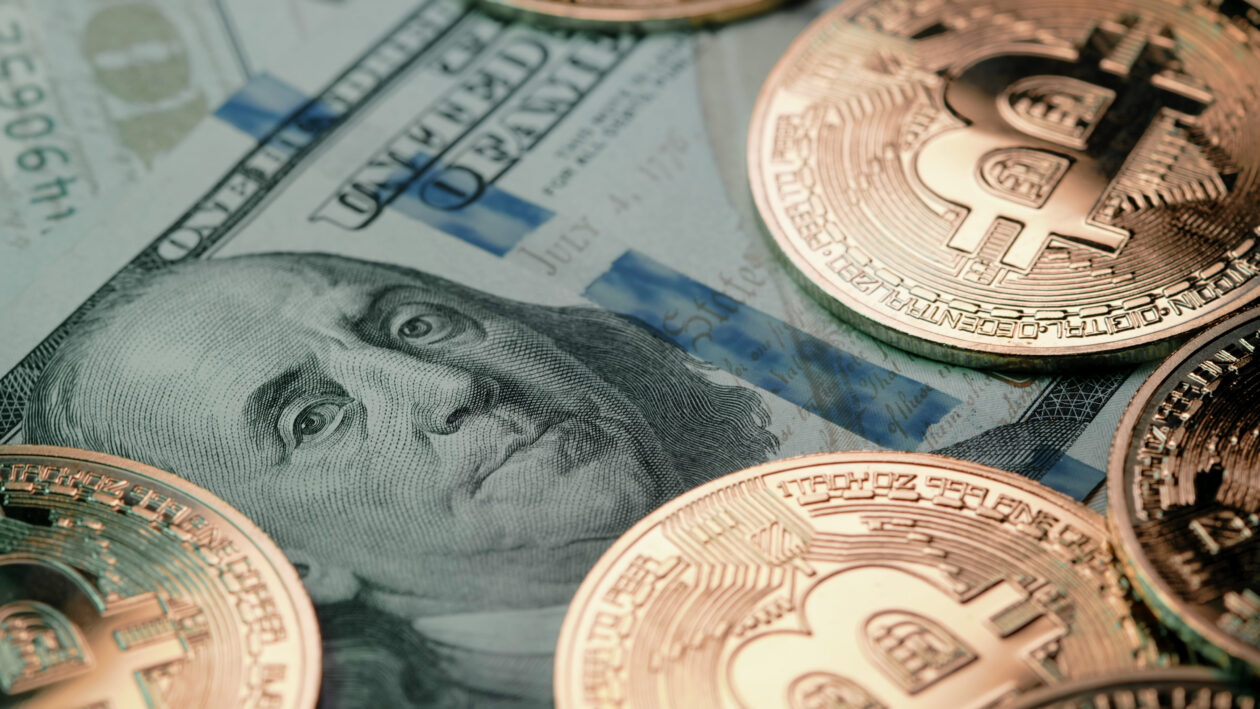Bitcoin and Ether dropped on Thursday afternoon trade in Asia, along with all other top 10 non-stablecoin cryptocurrencies. Dogecoin was the only token to post gains. Prices of cryptocurrencies strengthened on Wednesday after a favorable verdict for Grayscale Investments in its ongoing legal dispute with the U.S. Securities and Exchange Commission (SEC).
See related article: How Worldcoin is undermining crypto’s original ethos
‘Cautious optimism‘
Bitcoin dropped 0.65% to US$27,258 in 24 hours to 4 p.m. in Hong Kong, but has gained 2.97% on the week. Bitcoin’s next halving event is expected to take place in April 2024, and is expected to half the number of new Bitcoin, increasing its scarcity, thereby pushing up prices.
“Bitcoin’s behavior is not out of line with prior expectations, and it has historically lost support at the 20-week moving average in Q3 of every pre-halving year,” Rajagopal Menon, vice president of WazirX, India’s largest crypto exchange by volume, told Forkast.
Crypto market conditions are volatile and can be influenced by various factors, like regulatory news and macroeconomic shifts.
“There is cautious optimism, tempered by historical data and the performance of certain technical markers. Traders are concerned about Bitcoin and altcoins holding their respective 20-week moving averages as well as how macroeconomic trends like S&P 500 performance could affect the market,” Menon said.
Ether, too, dropped 0.7% to US$1,705, but posted a weekly gain of 1.84%, according to CoinMarketCap data.
All other top 10 non-stablecoin cryptos fell in the past 24 hours, except Dogecoin, after a rally on Wednesday following a favorable U.S. court ruling for Grayscale Investments in its ongoing legal dispute with the SEC.
The Connecticut-based digital asset management firm filed a lawsuit against the SEC in June 2022 following the rejection of the company’s proposal to convert its GBTC Bitcoin fund into a spot Bitcoin exchange-traded fund (ETF). A U.S. appeals court overturned the SEC’s refusal on Tuesday, opening up a potential avenue for approval.
The ruling is seen as a beacon of hope for Grayscale and is expected to chart the course for other financial giants, such as BlackRock, Fidelity, Invesco and WisdomTree, who have filed their own ETF applications with the SEC and are waiting for an approval. However, the regulator delayed a decision on Ark Investment Management’s ETF application in early August and could do so again.
“This judicial victory, which pushed Bitcoin to levels of US$28,000, will not mean the launch of the long-awaited spot Bitcoin ETF, with more legal procedures and delays that the SEC may take, but it may enhance hopes of the possibility of launching those ETFs that have been applied for by several major U.S. asset managers,” pointed out Samer Hasn, market analyst at multi-asset brokerage firm XS.com.
“The SEC has faced criticism for its perceived ‘regulation-by-enforcement’ approach to crypto; approval of a spot Bitcoin ETF would serve as a counter-narrative, showcasing their willingness to endorse suitable products,” European cryptocurrency investment firm CoinShares said in a blog post. “No matter what happens, the Court’s decision has definitely put the SEC on the back foot and dramatically improved chances for the approval of a spot Bitcoin ETF.”
Meanwhile, a U.S. district court on Wednesday dismissed charges against a group of five firms, including Uniswap Labs and investment giant Andreessen Horowitz, for alleged securities violations on the Uniswap decentralized trading platform.
While the dismissal of that lawsuit was based on the fact that these tokens, which are decentralized finance applications, are commodities and are not subject to the laws of securities regulation or exchanges, the judge also noted that Uniswap Labs is not responsible for damages caused by a third party, according to Hasn of XS.com.
“What happened in the case against Uniswap Labs could be the first steps in clarifying the legal and regulatory environment for DeFi applications and could make investors’ concerns about sudden lawsuits and actions by regulators less and make them more predictable. On the other hand, this measure, and other similar possible measures, if taken in the future, may restrict investors’ confidence in these applications due to the inability to regulate them and enforce the law on them,” Hasn added.
Among the top 10 cryptos, Toncoin, the native token of proof-of-stake blockchain TON, dropped 2.11% to US$1.69 in the past 24 hours, but posted a weekly gain of 18.04%.
“Toncoin is the current flavour of the season,” Menon of WazirX said.
“TON is intrinsically tied to the Telegram messaging app, which boasts 55 million daily active users and 550 million monthly active users. This provides a ready-made user base that could easily adopt Toncoin for a variety of applications. If even a fraction of Telegram’s user base adopts the TON wallet, the network could experience significant growth, much like WeChat Pay did in its ecosystem,” Menon explained.
Dogecoin was the only token to gain in the past 24 hours, rising 1.43% to US$0.0665, bringing its weekly gains to 4.33%. The gains come after long-time Dogecoin advocate Elon Musk, the chief of social media platform X (formerly Twitter), received a currency transmitter license from Rhode Island state regulators. The license will allow X to exchange, custody, and transfer digital currencies.
“Altcoins generally follow Bitcoin’s lead, albeit with greater volatility. They appear to lose confidence earlier than Bitcoin, suggesting that if Bitcoin faces a downturn, altcoins could potentially suffer more. The market is presently cautious, which could put additional pressure on altcoins,” Menon added.
Total global crypto market capitalization dropped 0.67% to US$1.09 trillion, while crypto market volume fell 47.96% to US$28.81 billion in the past 24 hours.
NFTs rise on positive crypto news
The Forkast 500 NFT index rose 0.41% to 2,203.36 in 24 hours to 6 p.m. in Hong Kong, but is down 3.02% on the week. At the same time, Forkast’s Ethereum and Solana indexes posted gains, while Polygon index dropped.
“NFTs somehow, someway are having a decent day mostly behind very optimistic news from crypto. On the NFT side the SEC charges against Impact Theory loom over all, but somehow, NFTs are up,” said Yehudah Petscher, NFT strategist for Forkast Labs.
The SEC charged Los Angeles-based media company Impact Theory on Monday with offering and selling its “Founder’s Keys” NFTs as unregistered securities. This marked the first direct enforcement action by the regulator against an NFT project.
Meanwhile, total NFT sales volume rose 24.24% to US$14.28 million in the past 24 hours. Total NFT transactions rose 2.55% while the number of NFT buyers increased 2.29%, according to CryptoSlam data.
Among blockchains, Ethereum topped rankings as its sales volume grew 54.7% to US$8.59 million. Polygon and Solana ranked second and third respectively.
Among collections, Ethereum-based Bored Ape Yacht Club topped rankings, as it surged 327.95% to US$2.39 million in the past 24 hours. Mutant Ape Yacht Club, another Ethereum-based collection, surged 109.16% to US$593,477, rising to the third spot by sales volume.
Polygon has a new collection called Bellyland which has traded for US$552,940 in the past 24 hours, making it the fourth largest collection by sales volume.
“Today is a day that shows off the strength of the multi-chain NFT ecosystem. Somehow both new and existing mints are performing well,” Petscher added.
Asian equities down, U.S. stock futures mixed while European bourses gain

Most Asian markets were down at the close of trading hours on Thursday, after China reported its factory activity in August dropped for a fifth straight month, while non-manufacturing activity fell to a yearly low as the world’s second largest economy grapples with a crisis in the real estate sector.
“In China, property is effectively your savings,” said Alicia Garcia-Herrero, chief Asia economist at wealth management firm Natixis, according to a BBC report. “Until recently, it seemed better than putting your money into the crazy stock market or a bank account with low interest rates.”
China’s Shanghai Composite and Shenzhen Component Index, South Korea’s Kospi, and Hong Kong’s Hang Seng index dropped. Japan’s Nikkei 225 gained.
U.S. stock futures were mixed as of 6.45 p.m. in Hong Kong on Thursday. The Dow Jones Industrial Average futures and the S&P 500 futures gained, while the Nasdaq 100 Futures declined.
U.S. gross domestic product (GDP) for the second quarter recorded a lower-than-expected annual growth rate of 2.1%, down from 2.4% reported in July.
Also in the U.S., the Labor Statistics Bureau’s Job Openings and Labor Turnover Survey (JOLTS) for July fell to 8.82 million, from 9.17 million in June, to the lowest monthly level since 2021, reflecting a gradual cooling of labor demand and fewer job openings.
“The Fed’s battles against inflation, growth and jobs are being won,” said Nigel Green, founder and chief executive officer of financial management group deVere, in an emailed statement on Thursday. “If the Fed does not stop its rate hiking agenda, it will lose the confidence of the public and financial markets which would have serious, far-reaching negative consequences for the U.S. and the world.”
The U.S. central bank last raised its interest rate to between 5.25% and 5.50% in July, the highest level in 22 years.
European bourses strengthened on Wednesday, with the benchmark STOXX 600 and Germany’s DAX 40 rising during afternoon trading hours in Europe. According to preliminary data by the European statistics office on Thursday, headline inflation in the euro zone for August came in at 5.3%, above market expectation of 5.1%.
The European Central Bank (ECB) is scheduled to meet on Sept. 14 and announce any further interest rate increases. The ECB has already hiked rates by 4.25 percentage points since July last year.
(updates with equities section.)






